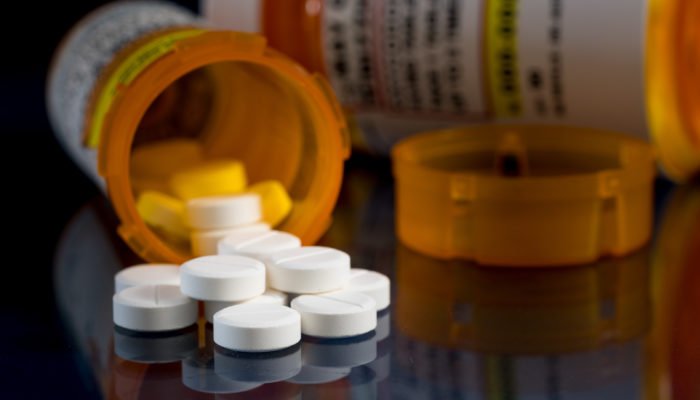Many drivers are surprised to find out that the medicine they are legally prescribed can get them in the same amount of trouble as an illegal drug. In fact, it can be worse than having a few drinks before getting behind the wheel.
Working with an experienced Pennsylvania DUI attorney can help you fight your charges and avoid harsh penalties. Many DUI stops are conducted with critical mistakes, and other procedural errors can force prosecutors to drop or reduce charges. Your DUI lawyer can also help you seek a plea deal if no strong defense strategy is available.
Learn more about your options during a free, no-obligation case review with Steven E. Kellis. Call (215) 940-1200 or contact us online now to schedule your free case evaluation.
Driving on Prescription Meds Can Lead to Harsh DUI Penalties
The specific language of Pennsylvania’s DUI statute (P.S. § 3802(d)(2)) includes a provision for when a driver is, “under the influence of a drug or combination of drugs to a degree which impairs the individual’s ability to safely drive.” This encompasses a range of substances, including many commonly prescribed medications.
Furthermore, many medications happen to fall under Schedule I and Schedule II federal controlled substance laws. When taken before driving, these medications are treated the same as illegal drugs like heroin and cocaine, per P.S. § 3802(d)(1).
Individuals who are arrested for a suspected DUI involving any drug – prescribed or not – receive the harshest minimum sentencing penalties, per P.S. § 3802(c). That means:
- Mandatory 12-month license suspension
- 72 hours in jail up to six months in prison
- Minimum $1,000 fine, up to $5,000
- Probable loss of CDL
These penalties are identical to being convicted for a Highest BAC DUI, which equals .16% BAC or higher. In other words, taking your prescription and driving means you are treated the same as someone who drank seven shots and is ready to pass out!
Medications That Can Get You a Controlled Substance DUI in Pennsylvania
When prescribed certain medicines, both your prescribing doctor and the label of the bottle itself should warn you against driving. However, many patients fail to understand that if they do drive, they are committing a crime while putting themselves and others in danger.
Examples of medicines that can get you a DUI-D in Pennsylvania include:
- Xanax
- Ativan
- Ambien
- Prozac
- Oxycodone
- Valium
- Diazepam
- Lorazepam
Any medicine that arguably impairs driving abilities can lead to a DUI stop, an arrest, and prosecution for the harshest penalties under Pennsylvania DUI law.
Defenses for DUI After Taking Prescriptions
There are many defenses available to individuals facing prosecution for a DUI involving prescription medications.
One of the most common DUI-D defenses is that there is no material evidence. Material evidence would prove that the defendant was under the influence of the substance while driving. This is different than merely having the drug in your system.
Drug tests often rely upon metabolites, which are the by-products of the chemical after it has been partially broken down by the liver. These metabolites can be present for hours – sometimes days – depending on the drug that was taken.
A test may show up “positive” for having a drug in your system, but it does not necessarily mean that you had enough of the drug in your system to affect your driving. In many cases, you may have taken the medication long enough prior that any side effects went away before you drove.
Other defenses available are common to all DUI defenses:
- Was the stop/checkpoint legal?
- Are there inaccuracies in the police report?
- Was an arrest justified?
- Was the suspect read their Miranda rights?
- Was due process followed?
- Were chain of custody procedures followed for secure evidence handling?
- Are there any conflicts with the prosecutor’s case and the letter of the law?
Any of these avenues can allow you to beat certain charges, have evidence withdrawn, or overall weaken the prosecution’s case.
On top of this, your Pennsylvania DUI lawyer can negotiate for a more lenient charge or enter into a favorable plea deal with the prosecution. Striking a deal often means your penalties are less harsh than the minimum sentencing guidelines for DUI-D.
Talk to a Pennsylvania DUI Attorney About Your DUI Controlled Substance Charges
Speaking with an experienced DUI lawyer in Pennsylvania can help you understand your options and prepare defense strategies for your case.
Many people are able to take prescription medicines and still drive regularly, provided they are careful and time their usage appropriately. Having a DUI attorney can protect your right to legally drive and help you beat charges you don’t deserve. At the very least, you can seek a favorable plea deal or alternative sentencing to minimize the impact on your future.Schedule your free, no-obligation consultation with Steven E. Kellis today at (215) 940-1200 or by contacting us online.
Related articles :
DUI Versus DUI-Drugs In Pennsylvania
How A Ruling In Arizona Could Impact Medical Marijuana DUIs In Pennsylvania
